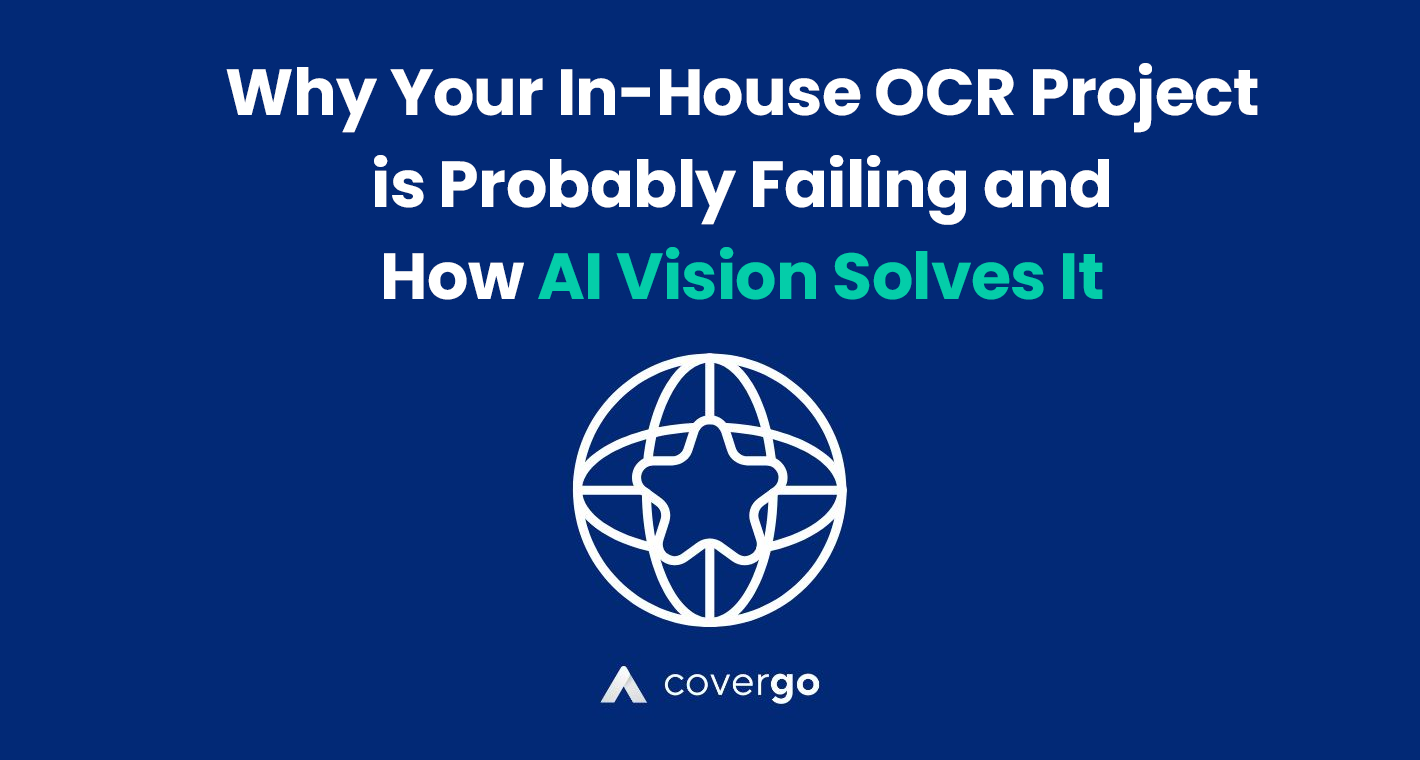Insurance management software refers to a type of computer program or platform designed to help insurance companies manage their policies, claims, and other related operations. The software can be used to streamline various processes involved in insurance, such as underwriting, policy management, claims processing, customer support, billing, and reporting.
Insurance management software can be customized to meet the specific needs of different types of insurance companies, including health insurance, life insurance, property and casualty insurance, and more. Some common features of insurance management software may include:
Product Builders
Insurance management software can provide product builders that make insurance product building faster and more scalable. Product builders are tools within the software that allows insurance companies to easily create and modify insurance products without requiring extensive programming or technical knowledge.
With product builders, insurance companies can quickly create new policies and make changes to existing policies, such as adjusting coverage levels or adding new features. This can help insurance companies stay competitive and respond quickly to changing market demands. In addition, product builders can also help insurance companies reduce costs and streamline their operations by automating the product-building process.
Insurance management software can provide a variety of product builders to meet the needs of different types of insurance products. For example, a health insurance product builder may allow insurance companies to select different coverage levels for different medical procedures, while a property and casualty insurance product builder may allow insurance companies to customize coverage options based on the type of property being insured.
By providing product builders, insurance management software can help insurance companies stay ahead of the competition, improve customer satisfaction, and increase revenue. With the ability to quickly and easily build new insurance products, insurance companies can offer more diverse and customized insurance options to their customers, which can lead to increased sales and customer loyalty. Additionally, the scalability of product builders can help insurance companies expand their offerings and enter new markets more efficiently, further increasing their revenue potential.
Policy administration
Insurance management software can provide modern policy administration systems that can help insurance companies streamline their policy management processes, improve operational efficiency, and provide better customer service.
Modern policy administration systems within insurance management software are designed to replace legacy systems, which can be slow, outdated, and difficult to maintain. These modern systems are built using the latest technology and can provide insurance companies with a range of benefits.
One of the main benefits of modern policy administration systems is their flexibility. They can be easily customized to meet the specific needs of different types of insurance products, including health insurance, life insurance, property and casualty insurance, and more. This means that insurance companies can tailor their policy administration systems to their exact requirements, which can help them provide more efficient and effective service to their customers.
Another benefit of modern policy administration systems is their automation capabilities. They can automate many manual processes involved in policy administration, such as data entry, underwriting, and claims processing. This can help insurance companies reduce costs, improve accuracy, and free up staff time to focus on more complex tasks that require human intervention.
Furthermore, modern policy administration systems can also provide real-time data and analytics, which can help insurance companies make informed decisions about their policies and operations. This data can be used to identify trends, spot potential risks, and improve policyholder satisfaction by identifying areas where processes can be streamlined or improved.
Claims management
One way that insurance management software can help with claims management processing is by providing digital claims submission tools. These tools allow policyholders to submit claims online, either through a web portal or a mobile app, without having to visit an office or mail in paper forms. This can save time and reduce the likelihood of errors, as the system can automatically validate and verify claim information.
Another way that insurance management software can help with claims management processing is by providing automated claims processing. With the help of artificial intelligence and machine learning, insurance management software can analyze and process claims quickly, flag potential fraud, and verify claims eligibility.
Insurance management software can provide real-time updates on the status of claims, including notifications of when a claim has been received, when it is being reviewed, and when a payout has been made. This can provide policyholders with transparency and peace of mind throughout the claims process.
Billing and payment
Insurance management software can help with billing and payment by providing online billing and payment portals. These portals allow policyholders to view their bills and make payments online, either through a web portal or a mobile app, without having to visit an office or mail in paper checks. This can save time and reduce the likelihood of errors, as the system can automatically verify payment information and ensure that payments are applied correctly.
Another way that insurance management software can help with billing and payment is by providing automated billing and payment processing. With the help of automation tools, insurance management software can generate bills, process payments, and update account information automatically, reducing the need for manual data entry and reducing the likelihood of errors.
In addition, insurance management software can provide real-time updates on billing and payment activity, including notifications of when a bill has been generated, when a payment has been received, and when a payment is due. This can give policyholders transparency and help them manage their finances more effectively.
Digital Distribution
Insurance management software can help insurers with omni-channel digital distribution by providing tools and features that allow them to distribute their insurance products through multiple channels, such as online portals, mobile apps, and social media platforms.
For example, insurance management software can provide a web portal where customers can view and purchase insurance products online. The portal can be customized to include features such as product comparison tools, personalized recommendations, and online chat support, which can help customers make informed decisions about their insurance needs.
Similarly, insurance management software can provide a mobile app that allows customers to purchase and manage their insurance policies on their mobile devices. The app can include features such as push notifications for policy renewals, digital ID card storage, and easy access to claims submission tools.
In addition, insurance management software can enable insurers to distribute their products through social media platforms, such as Facebook and Twitter. This can be done by integrating the insurance products with social media advertising and marketing campaigns, allowing insurers to target specific customer segments and drive sales through social media.
Embedded Insurance
Insurance management software can help insurers spread their products to digital channels using embedded insurance. Embedded insurance refers to the integration of insurance products into the products or services of other businesses, such as e-commerce platforms, ride-sharing apps, and home security systems. This allows insurers to reach new customers through existing distribution channels, without the need to create their own distribution channels.
Insurance management software can help insurers to develop and manage embedded insurance products by providing the necessary tools and features to integrate insurance products with third-party products and services. For example, insurance management software can provide APIs (application programming interfaces) that allow insurers to integrate their insurance products with the products or services of other businesses.
One example of embedded insurance is ride-sharing insurance, which is offered by insurance companies to drivers who use ride-sharing apps such as Uber and Lyft. With the help of insurance management software, insurers can integrate their ride-sharing insurance products with the ride-sharing apps, allowing drivers to purchase and manage their insurance policies directly through the app.
Another example of embedded insurance is travel insurance, which is often offered by airlines and travel booking websites. With the help of insurance management software, insurers can integrate their travel insurance products with these websites, allowing customers to purchase travel insurance as part of their flight or travel booking.
APIs
Insurance management software can help with APIs and integrations with third-party software and services, as well as its ability to integrate with legacy systems that already exist inside insurers.
APIs, or application programming interfaces, allow different software systems to communicate with each other, enabling the exchange of data and functionality. Insurance management software can provide APIs that allow insurers to integrate their insurance products with third-party software and services, such as e-commerce platforms, mobile apps, and social media platforms. This allows insurers to expand their distribution channels and reach new customers through existing digital channels.
In addition, insurance management software can also help with integrations with legacy systems that already exist inside insurers. Many insurers have older, legacy systems that were built using older technology and are difficult to integrate with newer systems. Insurance management software can provide integration tools that allow legacy systems to communicate with newer systems, enabling insurers to streamline their processes and improve operational efficiency.
For example, an insurance company may have a legacy claims processing system that is not integrated with its newer policy administration system. Insurance management software can provide integration tools that allow the two systems to communicate with each other, enabling the claims processing system to access policy data and update policy information in real-time.
Is it time to change or upgrade your insurance management software?
In today’s ever-digitalizing world, it is crucial for insurers to upgrade their internal systems and adopt insurance management software. Doing so enables insurers to keep pace with evolving customer expectations, streamline their operations, and expand their distribution channels to reach new customers.
Insurance management software offers a wide range of tools and features that can help insurers improve their product development, policy administration, claims management, billing and payment, analytics, and distribution capabilities. It can also integrate with legacy systems, providing a seamless transition to modern systems.
By adopting insurance management software, insurers can increase their operational efficiency, reduce costs, and offer better customer service. They can also leverage advanced analytics to gain insights into customer behavior and market trends and use that data to develop more personalized insurance products and services.
Are you ready to adopt insurance management software for your insurance transformation needs? Talk to one of our experts today and learn how CoverGo helps insurers save money, act faster, and grow larger.



